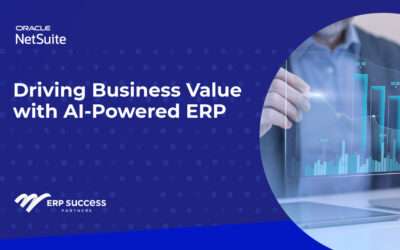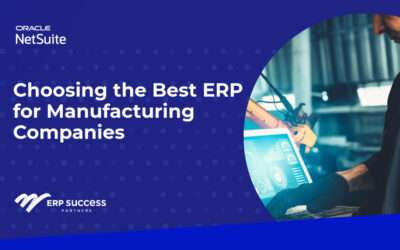Important links in global supply chains, transportation and logistics companies need robust technology tools that help them run their multifaceted operations efficiently, effectively and profitably. Over the last two years, these organizations have been put in the spotlight as pandemic-driven supply chain disruptions and shortages have been making daily news headlines.
Safe to say, any transportation or logistics operation that went into 2020 heavily reliant on aging legacy solutions, disparate applications and spreadsheets soon found itself behind the curve and trying to catch up. Many of these companies moved over to using cloud-based enterprise resource planning (ERP) solutions that gave them the high levels of visibility, accountability and transparency that they previously lacked.
They also get the tools they need to offset the current challenges impacting their industry.
“Recent disruptions caused by the COVID-19 pandemic are having a profound impact on the industry,” Oracle’s James Lou writes in The Transportation Logistics Outlook for 2022. “Leveraging transformative technology is now a strategic imperative for companies to not only survive but thrive in the pandemic economy.”
Lou goes on to detail some of the uncertainties that transportation and logistics companies are facing right now, including fluctuating supply and demand, the need to respond quickly to changing market conditions and the fact that the just-in-time (JIT) inventory management strategy is being challenged. “The ability to quickly forecast demand and having end-to-end supply chain visibility has become a top priority for logistics service providers,” he adds.
6 Reasons Transportation and Logistics Companies Need NetSuite
When they use ERP platforms like NetSuite, transportation and logistics companies get the financial management, reporting, inventory management, supply chain management and budgeting and forecasting capabilities that their previous systems didn’t offer. They also get these six key benefits:
1. Complete control over inventory
All of the data and information about orders, deliveries, inbound and outbound sales and more are stored on a unified system. This gives companies complete control over their inventory—one of the most important “wins” in the supply chain management arena.
2. Manage from anywhere and at any time
A warehouse manager can check stock from a mobile device, a finance manager can generate accurate reports and a customer service rep can give a customer an order update all from the same, centralized, cloud-based system.
3. Optimize your workforce
Keep track of break times, leaves of absence, payment bonuses and other important metrics right from your ERP. Then, use that data for good decision-making, resource allocation, reporting and compliance.
4. Get products to market faster
When they use a single cloud-based ERP, all suppliers, distributors, delivery partners and other stakeholders know where everything is in the supply chain at any time. Using data generated by NetSuite, they can ensure effective distribution management and avoid delays and other unexpected surprises.
5. Better customer relationships
With NetSuite, transportation and logistics companies can generate a single view of a customer across all channels for complete visibility into all online, and call-center transactions and interactions. They can also build rich customer profiles based on behaviors and interactions that can be made available to sales, marketing and support personnel.
6. Improved financial reporting
NetSuite’s accounting functionalities help companies track revenues and expenses in a general ledger (GL) while automated reports help key decision makers make the kind of decisions that lead to more accurate and reliable logistics processes.
Supported by an experienced implementation partner like ERP Success Partners, NetSuite helps transportation and logistics companies get their inventory to the right place at the right time and at the right cost. It also supports good spend management, the management of multiple subsidiaries and provides the reporting and analytics that help companies gain a more complete picture of their organization both on-demand and in real-time.






